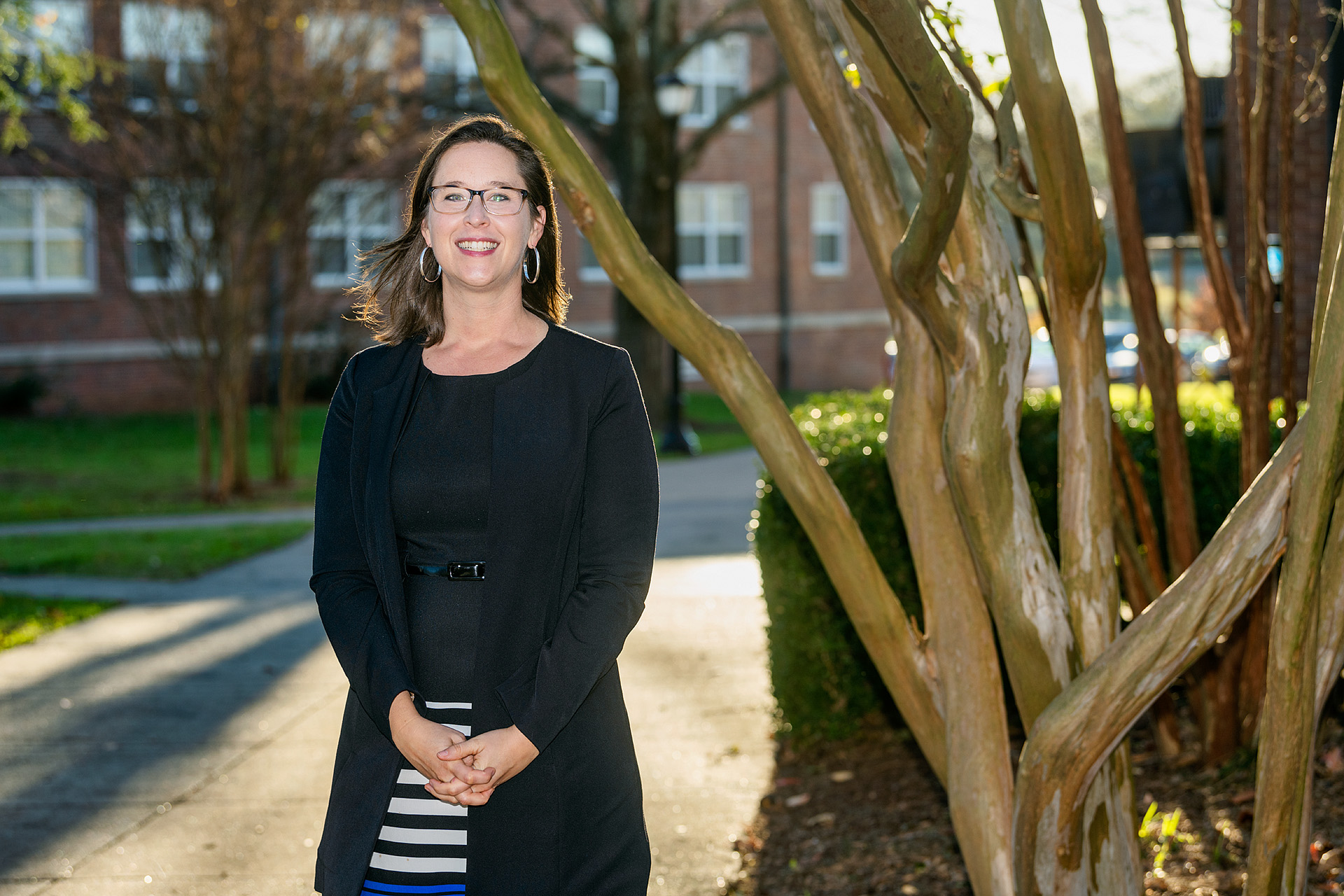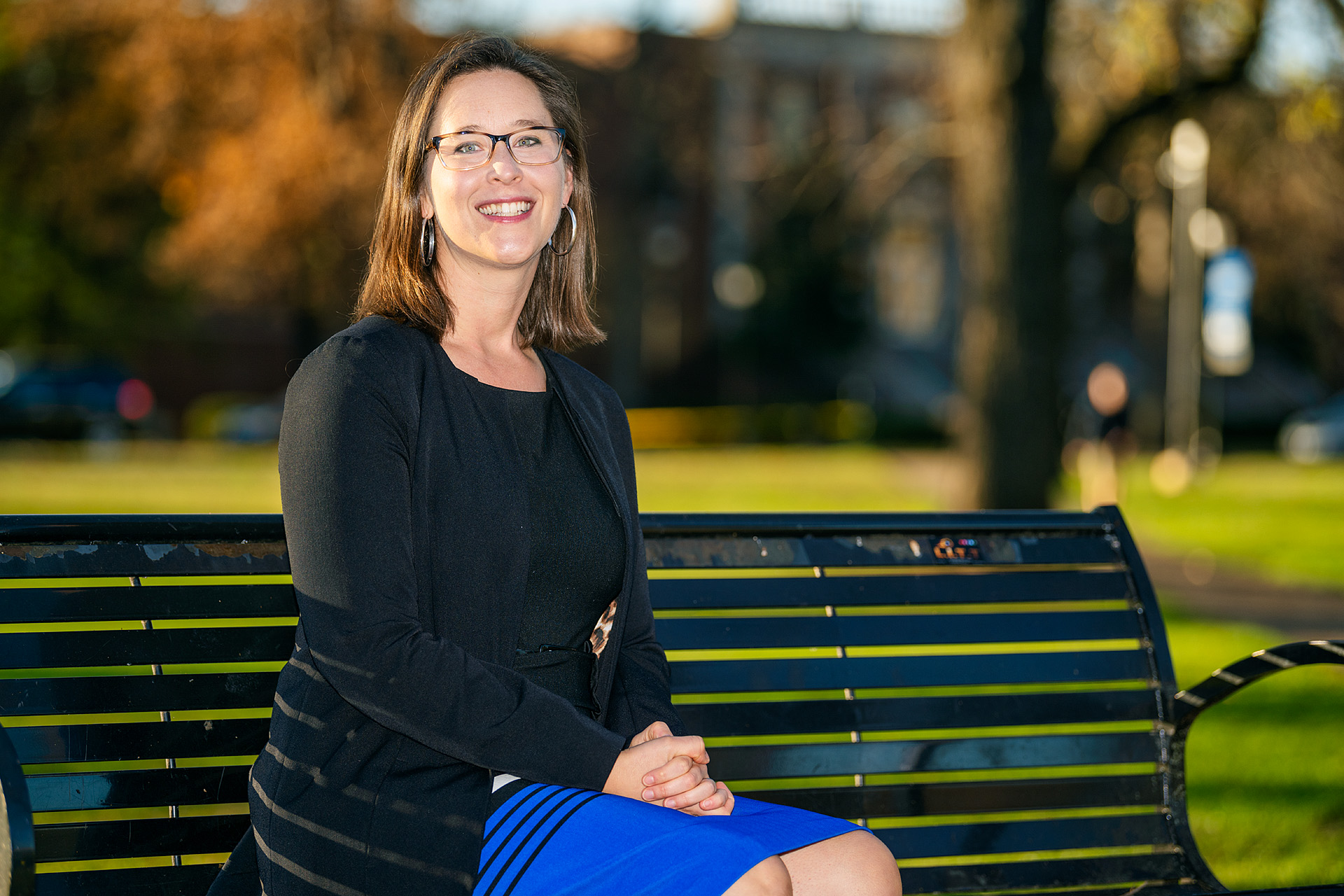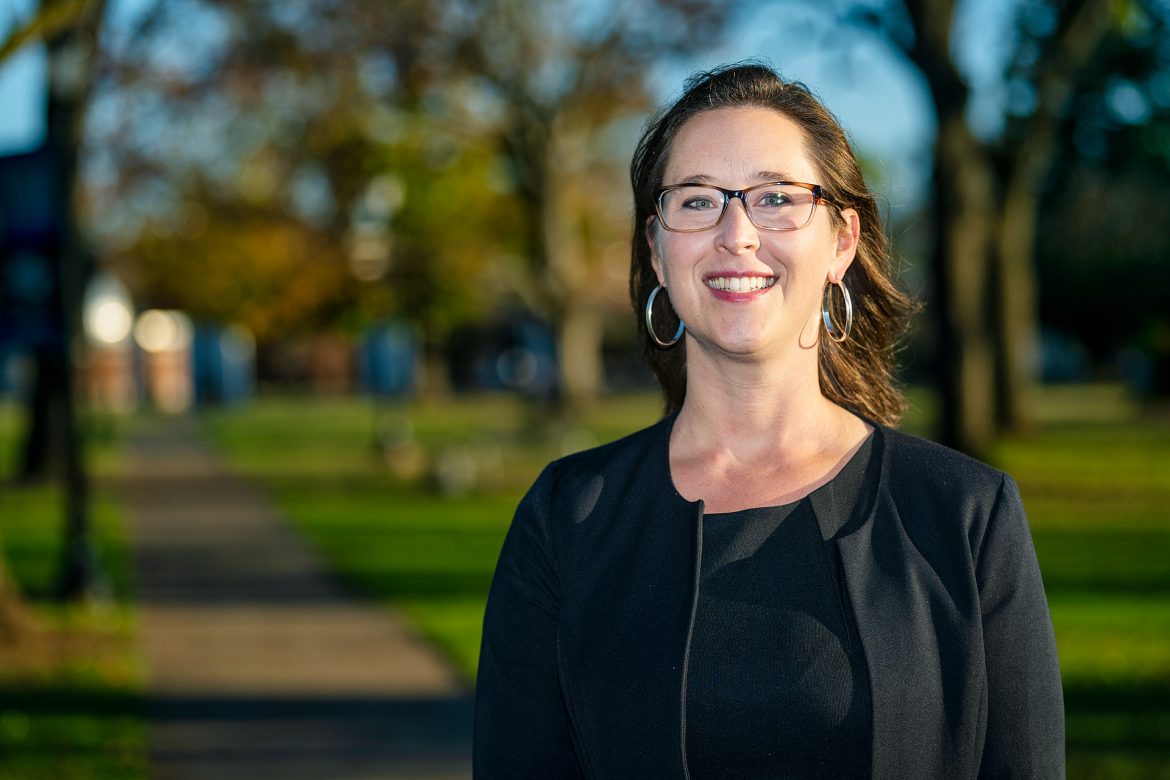By: Matthew Hibdon
Dr. Jenna Gray-Hildenbrand empowers her students to say, ‘I can do a lot of things with my religious studies degree because I have this religious literacy that will allow me to work in a number of really diverse communities. So, no matter who my future patients, clients, students, or co-workers are, I can work with them. I can be an asset to any business, school, or organization.’
Dr. Gray-Hildenbrand is an associate professor in the Department of Philosophy and Religious Studies and teaches the senior seminar that all religious studies students must take before graduating. While she is looking forward to teaching class in-person in the fall, she engaged in reflection, just like her students do each semester, about what she’s learned while teaching during the COVID-19 pandemic.
“I’ve taught this class for a number of years now, and it felt different this year. One of the goals of this course is that it is a true capstone experience. Part of the class involves students thinking through all of the religious studies courses that they’ve taken at MTSU—what content they’ve learned, what skills they’ve gained, how that has shaped them, and how that education connects to their values,” she explained.

Jenna Gray-Hildenbrand, Philosophy and Religious Studies faculty, in Walnut Grove for her faculty profile. (Photo: Andy Heidt)
The first assignment involves giant sticky notes that students use to map their educational journeys to that point.
“At the end of the semester, I bring back those sheets. We look at them and reflect as a group. A lot of times as our students are pursuing their education, they do not have a lot of time to reflect on the big picture. They are just trying to make it through each semester. This class gives them the space to reflect how their education has shaped who they are as people and plan for what they will do next,” she said.
Gray-Hildenbrand said a lot of the conversations through this initial assignment center around questions about how students became interested in religious studies and how it connects to who they are as a person. The capstone project for the course is the culmination of all these questions.
“It can be very anxiety-provoking, even in a non-pandemic year, to think about, ‘Wow, I’m going to graduate? And I have to do something after this?’ And that’s why these group conversations are so important. In a group of your peers, you are all in this together and trying to figure it out. To try to recreate that support network and learning community online when you physically can’t be close to each other was somewhat challenging,” she said.

Jenna Gray-Hildenbrand, Philosophy and Religious Studies faculty, in Walnut Grove for her faculty profile. (Photo: Andy Heidt)
Gray-Hildenbrand found solutions to doing group work with physical distancing requirements in this web-assisted course. “We have a beautiful campus at MTSU, and, whenever possible, I wanted to bring my students outdoors. If a student needed to join the class virtually we stayed inside the classroom, but when everyone could be there in person, we went outside.
“It is helpful to have the assignments in your hands, so I would wash and sanitize my hands, print out the assignments we would be using in group work. Then, I would put them in a tote bag every day for each student. And they put their names on the tote, which I brought to class with me every week. This allowed me to review their assignments and journals, and they could reflect on their previous work each week too.”
Gray-Hildenbrand also recalls that her students were amazing and so supportive of each other throughout the entire course. During a class session last November, one of the students asked, ‘So how is everyone?’ Even though that was not a specific group discussion that Gray-Hildenbrand had planned, a lot of things came up, and the students were able to share their experiences.
“A lot of faculty members were trying to recreate to the best of our ability the level of student engagement, discussion, and quality in our classrooms that we had prior to the pandemic. At the beginning of the school year, I committed to recreating that informal time after class where students normally line up to ask you questions. I told the students that I would stick around for 10 minutes after the end of our class time for questions and that sometimes turned into 30 minutes,” she said, adding, “I get as much or more from our students at MTSU than I could ever give them, and I was starved for interaction just like my students were. So that time we can talk about ideas and what they’ve learned is great. The students give so much energy, and I hope I can give that back to them.”
“What became important during the pandemic is that we all became so profoundly present, living in the day-to-day. What these group projects do is help students reflect and realize that they’ve been on a journey through their education and that they have a future to look forward to.”
– Matthew Hibdon (Matthew.Hibdon@mtsu.edu)


COMMENTS ARE OFF THIS POST